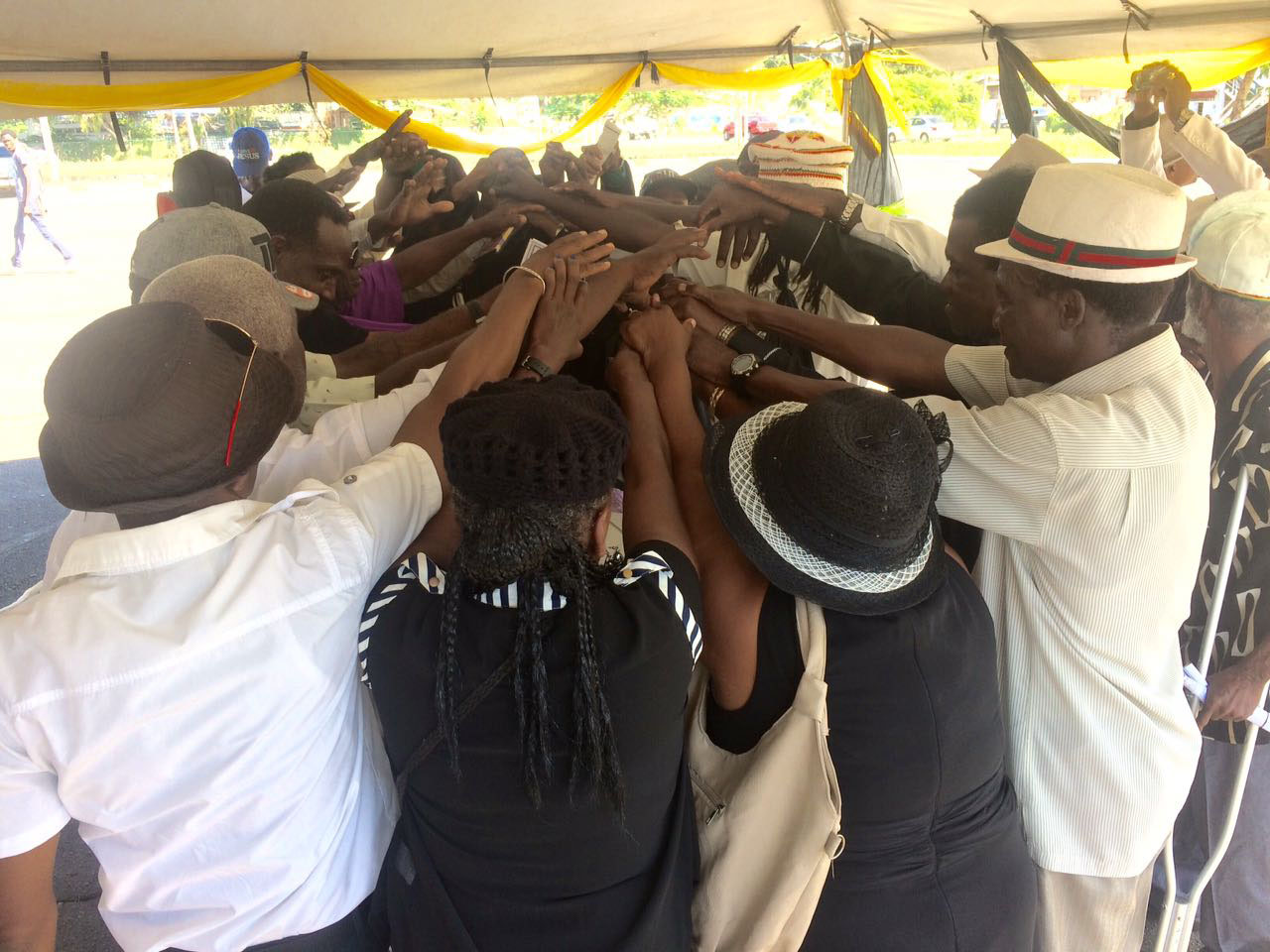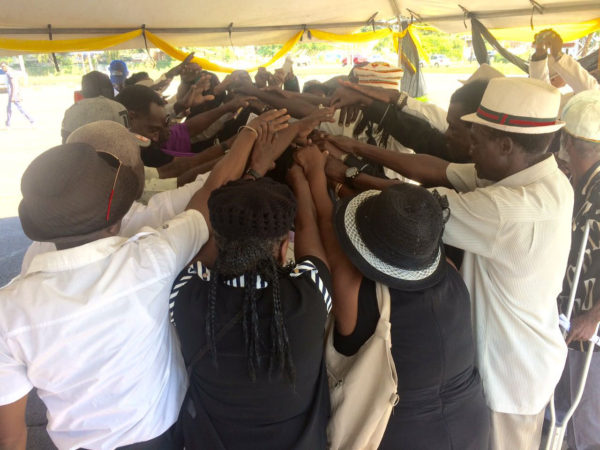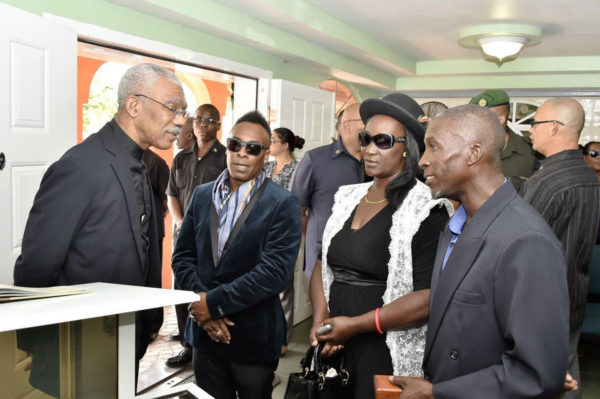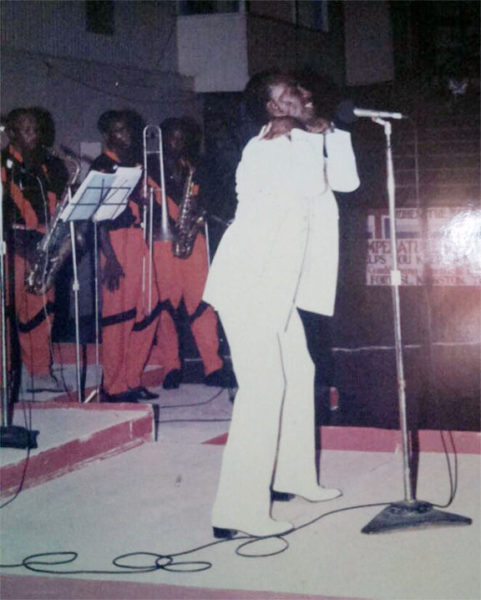Lord Canary, eulogized as an icon, developer, cultural enabler, and the best Calypsonian Guyana has ever produced, was ushered from this world yesterday with fitting tributes.
The tribute ceremony of Malcolm Corrica, which preceded the church service, was held in the parking lot of the National Cultural Centre yesterday afternoon. It was a time of not only mourning, but joy for the remembrance of a man who was regarded with deep admiration and respect by his colleagues and peers.
“Lord Canary was a household name in my home, among my family,” Dr Seeta Shah began. “It was Fighter, Canary, Sparrow, in the same breath as Johnny Mathis and Frank Sinatra.”
Lord Canary, who was hailed as the Calypsonian with the sweetest voice, was honoured in song by many of the musicians who paid homage, as well as by his granddaughter, Faith Corrica, who, clearly having inherited her pipes from her grandfather, belted out a slightly modified version of Sinatra’s “My Way.”
Many made reference to the legacy Canary has left behind, not only locally, but in Trinidad and Tobago and across the Caribbean. There were at least two recounts of the story of the 1968 World Calypso Competition where Canary won the title, beating the Mighty Sparrow, but was slighted by the organisers when they discovered he was not Trinidadian. The story goes that he placed second instead, losing by just half a point after a recount.
“There lies our greatest Calypsonian. He is no more,” musician and producer Bonny Alves stated, pointing to the casket.
Technical Advisor to the Minister of Education Vincent Alexander lauded Corrica’s artistry, praising his ability to manipulate language, while making reference to his popular tune, “Wicked Cricket.”
“That song gave recognition to the fact that Canary was no ordinary person. Canary didn’t finish secondary school, Canary took a decision to go into trade when he was done with primary school. But he was an intellectual in his own right. And songs like ‘Wicked Cricket’ and the use of language tells you that he was an intellectual in his own right.”
A recital of “Wicked Cricket” was done later on by Hector Stout of the Guyana Calypso Association and caused the audience to erupt with excitement.
“I can tell you why this guy also was great,” Alves said. “You listen to this man sing Calypso and this man does sing some notes! Not only his highs, but in terms of the melody, you don’t get Calypsonians like that anymore. And I would hope that his death would really awaken his art and the art would come alive again and that the spirit of Canary will visit the Calypso fraternity and make things what it was again.”
According to guitarist Herbie Marshall, it was Lord Canary who inspired him to become the musician he is today.
He said, “The first impact I had with this mighty man… 1966 to be exact, he did a concert at the Christ Church Secondary School and I watched him on stage…I said, ‘man!’ I threw all my school books out the window. I said, ‘This is what I wanna do.’”
They spoke of his humility and humour, his always pleasant nature and above all, his contribution to culture and arts in Guyana and the need for continuous investment in that sector.
“It is important that we pay attention to culture… He left an example behind that we all need to follow… He is gone but there is always youth behind and we must nurture the young ones,” Calypsonian Winfield James said in his tribute. “Guyana has lost an icon… It pleased me and hurt me when I listened to the radio stations this week and hear the amount of calypso that was played that Canary sang. Where were they all the time?” James questioned.
Lord Canary died on October 10 at the Diamond Diagnostic Centre. He was 79.








